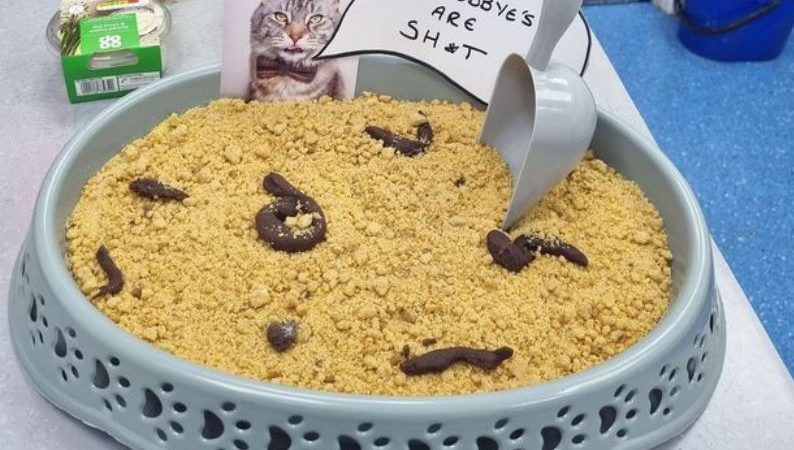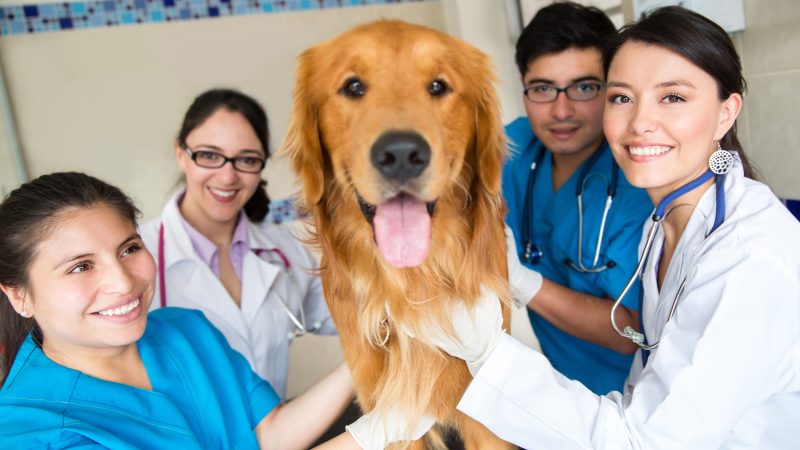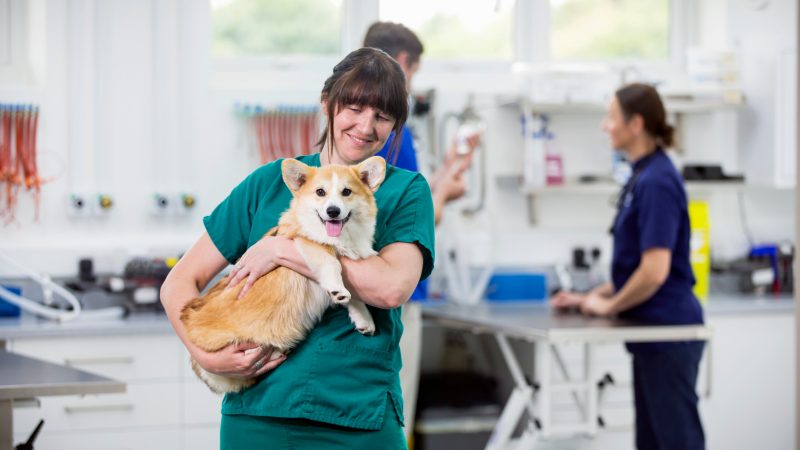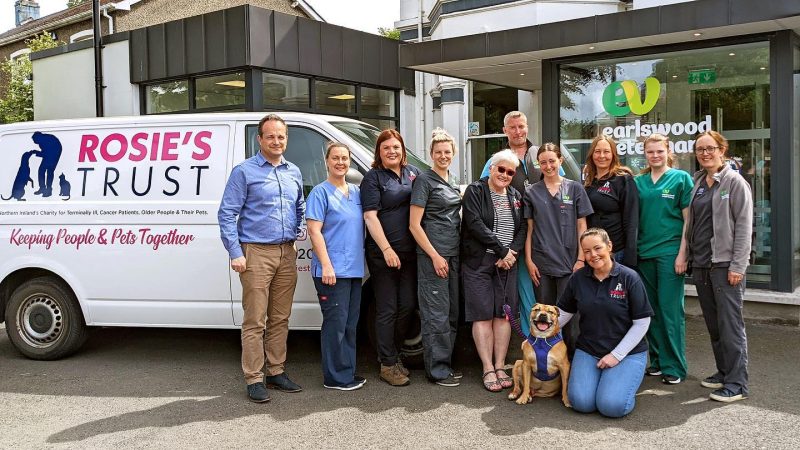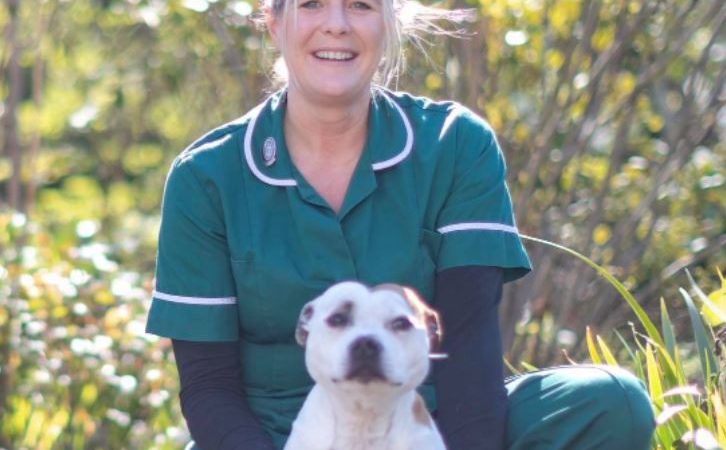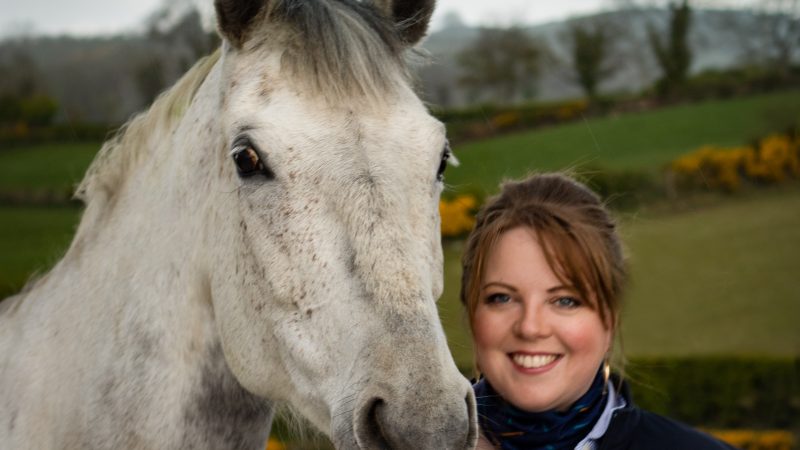A model of modern practice
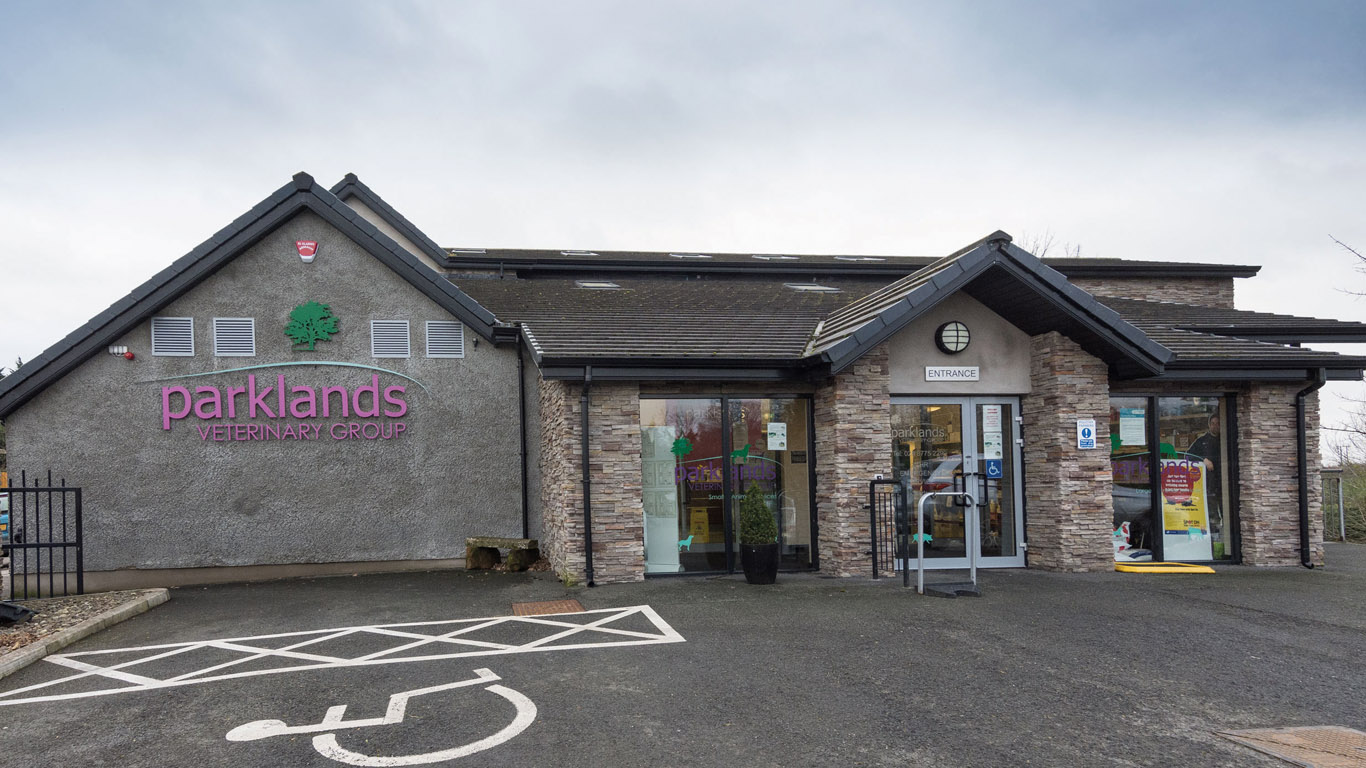
With five branches, eight distinct specialist areas and 32 full-time veterinary surgeons, the Parklands Veterinary Group, based in Dungannon, is now the largest independent practice in Ireland.
The continued success of Parklands Veterinary Group is vindication of a decision taken about 20 years ago to begin developing specialisations in the care of specific species. These days, Parklands offers expertise in a series of disciplines including small animal, farm animal, sheep consultancy, poultry, equine and pigs as well as a range of specialised breeding services and a wholesale supply facility.
First established in the 1950’s by Alan Stephenson, the modern practice remains headquartered in Dungannon, where a new state-of-the-art surgery building was opened in 2011. Cookstown opened its doors around 30 years ago at the same time as three of Parklands current directors – Ian Stewart, Jim Slaine and John Grant – joined as partners.
Ian had graduated from Glasgow in 1988 and spent three years in mixed practice in Co. Antrim before Philip Kyle, who had joined Alan Stephenson in 1962, offered him a partnership at Dungannon:

‘This was my home town and I was more than happy to have the opportunity to move back here,’ recalls Ian.
Even in those early days, Philip and his new partners were able to see that the catchment area for their burgeoning practice was heavily reliant on the intensive farming of livestock:
‘That might make some people think of just cows, but we were looking at cows, sheep, pigs, horses and of course, poultry,’ says Ian.
By making that early, deliberate decision to focus on the development of expertise in these areas, the partners were laying the foundations for the departmental specialisms that so distinguish the Parklands practice today.
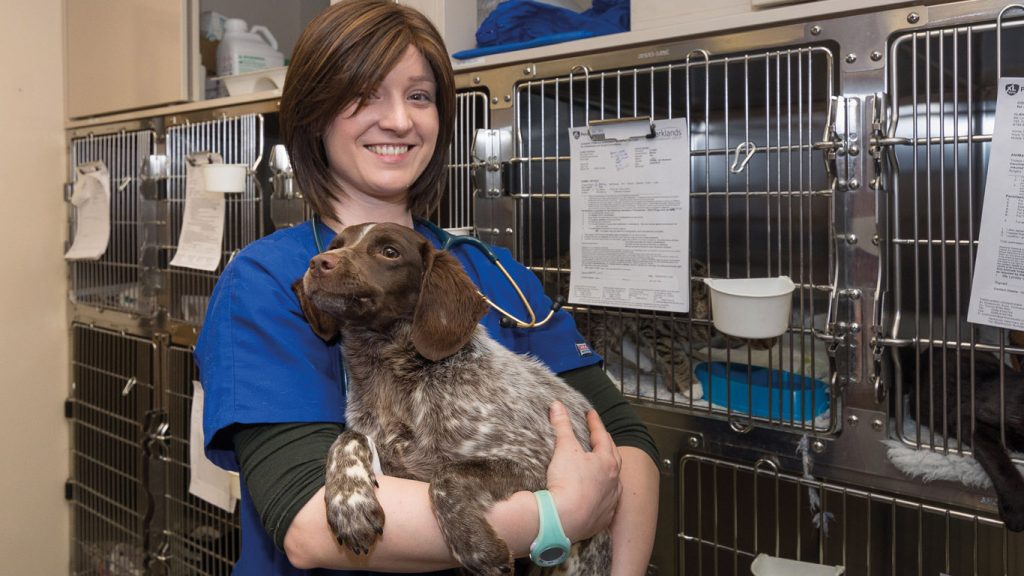
Expansion
The clinic in Cookstown developed throughout the 90s as a typical mixed animal practice. Craig McAllister eventually joined as an assistant and is now a director in the Dungannon surgery.
These days, John Grant is also based at Cookstown and is responsible for the cattle, sheep and pig teams at Parklands. Director, Jim Slaine is responsible for Parklands’ equine team and Andrew Abernethy, a director also based in the Cookstown surgery oversees specialised breeding services.
The next surgery to open after Cookstown was in Aughnacloy and it serves customers in the more westerly reaches of the practice area.
As the end of the millennium approached, Parklands departmental structure was becoming clearer as specialisms in pigs, poultry and small animal care continued to evolve. Andrew Turkington joined the burgeoning practice from GB in 2010 and now heads up the small animal team.
Then, in 2013, Eamon Donnelly became a director in the practice, bringing his Coalisland mixed practice into the Parklands fold and bringing the tally of directors at Parklands to seven.
In 2015, a surgery was acquired in the village of Portglenone, nine miles north of Ballymena – that practice is now about to employ its fourth veterinary surgeon.
These days, a cohort of more than 50 support staff are required to help administer a practice network that reaches from the north coast of Northern Ireland down to Armagh and the southern border.
‘I would say that about 25 per cent of our business today centres on intensive livestock and poultry,’ says Ian Stewart, who himself, works exclusively in poultry following an on-farm accident in 2015. ‘About 50 per cent of our work is with cattle and sheep, five per cent is equine and about 20 per cent is small animal.
‘And that intensive livestock element of the business is still growing as is companion animal. There is a perception that the traditional farm animal business is probably growing as well, but something that you really have to work at.’
Within the last 18 months, business at the Parklands Veterinary Group has grown by about 10 per cent.
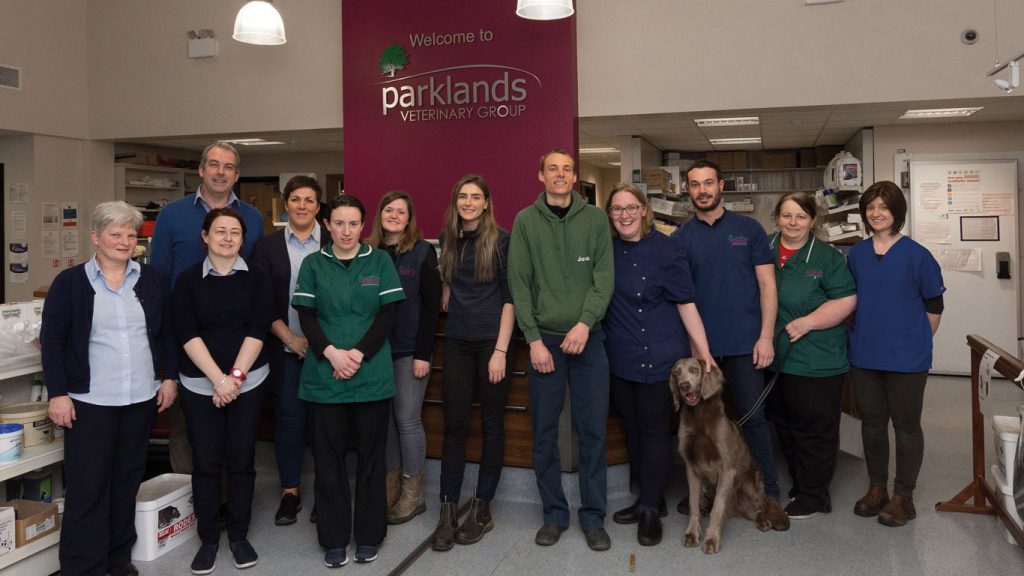
Skills
Ian reports that turnover among veterinary surgeons in the practice as a whole amounts to about two or three people each year. Turnover among RVN’s is said to be ‘very low’, with most leaving as a result of maternity. The longest service staff member at Parklands has been with the group since 1962.
However, Ian does admit that as with many professions these days, veterinary recruitment is ‘a big issue’ for Parklands. A significant investment in extra-mural placement has allowed the practice to ‘stay ahead of the curve’, he insists:
‘We place a lot of emphasis on bringing veterinary students in here to see the practice,’ he adds. ‘At any one time, we might have anything from two to eight students with us in the practice. Sometimes, they come from universities in the EU and we have facilities here to provide them with accommodation onsite. That encourages them to engage with us and to learn and very often, if positions become vacant, we are in a position where we can offer jobs to some of the students.’
At the moment, there are about six vets from the EU working with the practice and Ian does admit that he and his fellow directors are ‘concerned’ by the prospect of Brexit:
‘We just hope that common sense is going to prevail and they won’t have to go back home,’ he tells NIVT. ‘We’re trying to run our business and provide the best veterinary care that we can. We’re trying to bring on as many young vets as possible and we we’re focused on things like improved working conditions and a better work/life balance for everyone in the practice.’
Ian is concerned enough about the ongoing sourcing of skilled staff to cite as a priority the pipelining of new graduate vets into the practice:
‘We want to get them mentored and trained up so that they become just as good as the excellent team of vets that we have working for us at the moment,’ he adds. ‘But it’s also the case that the nursing and reception teams that we have working for us at the moment are phenomenal. Vets will come and go, but the staff behind the counter, the voice on the phone are usually our first point of contact with customers and they are exceptional.’
Other priorities for the future at Parklands include a continued focus on the development of its services in the intensive livestock and poultry sectors.
‘The goal of all our directors is to develop a happy, productive workforce committed to providing the best proactive services that our clients and their animals require,’ says Ian. All directors goal is to develop a happy productive workforce committed to providing the best proactive services that our clients and their animals require.


